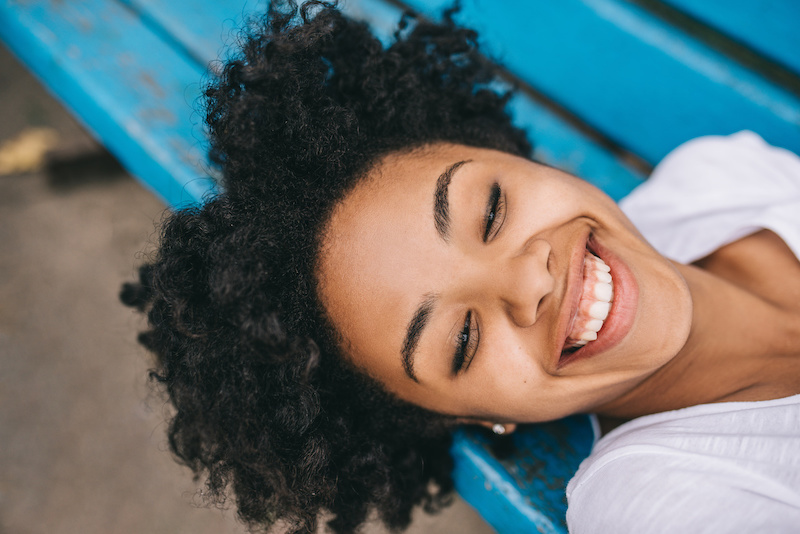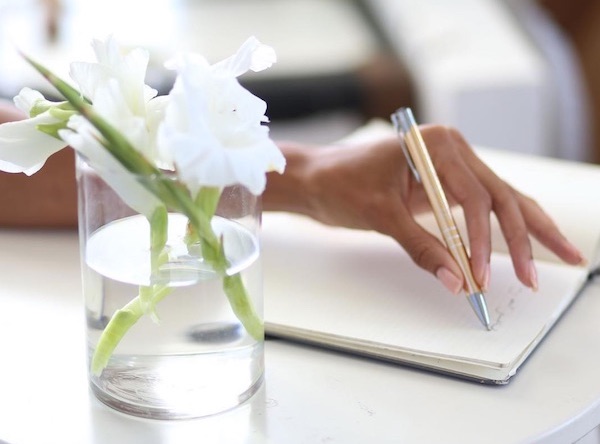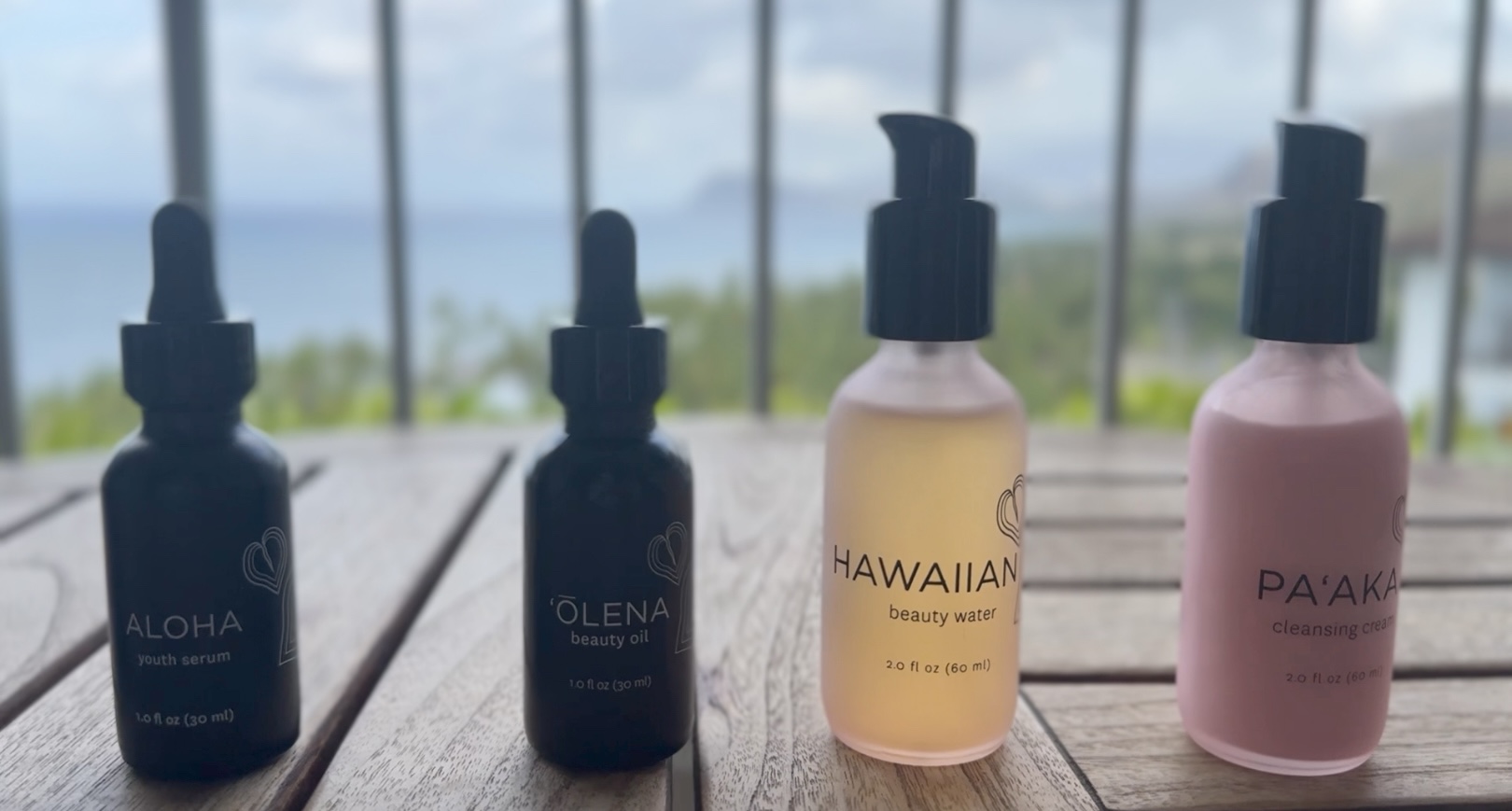For women beginning their natural hair journey, soaking in all the information can be intimidating. When I first made the transition from chemical relaxers to rocking my hair in its natural state, many “natural hair gurus” told me about different techniques, products, and ideas that were supposed to make my transition a successful one. However, none of those tips did anything for me until I learned and understood how to properly take care of my natural mane on a daily basis.

Understanding how to care for your hair the right way precedes everything else. But once you do, you’ll have a solid foundation to build on. You’ll be able to create a natural hair regimen that’s successful long-term and makes you love yourself in your natural state even more. This, of course, leads to you being increasingly happy, self-confident, and comfortable in your own skin, a wonderful state of mind to keep.
Here are the three basic natural haircare tips to maintain and grow healthy natural hair.
1) Focus On Adding & Retaining Moisture
When you make the transition from a relaxed girl to a Natural, you’re going to quickly realize your hair needs moisture… and a lot of it! This is because kinky hair gets dry very easily and doesn’t hold moisture in on its own very well.
How Much Moisture Do You Need?
The amount of moisture you need will depend on the texture of your hair or how thick and curly it is.
What Happens When You Forget To Moisturize?
Neglecting to keep your hair properly moisturized will make your natural hair transition a tough one. You will constantly be frustrated as you find yourself battling hair breakage, tangles and knots, frizz, and other hair problems.
You also won’t experience any hair growth because your hair won’t be able to retain any length. This is why adding and retaining moisture is the first and most important thing you need to grasp when it comes to natural hair care.
How To Add Moisture To Your Hair Regimen
One of the best ways to keep your natural hair moisturized is to use a D-I-Y formula that includes water and and a great oil, like castor oil. Here are three other oils that are great to add in your deep conditioner to get more moisturizing benefits:
- Coconut Oil – Along with being able to help your hair retain more moisture, coconut oil will also help protect your hair from heat, repair breakage, treat, and nourish your scalp, and more.
- Argan Oil – The moisturizing properties in this oil helps make your hair less brittle and dry. Adding a few drops of this oil in your deep conditioner will also help hep your hair become more soft and manageable.
- Jojoba Oil – Jojoba oil is one of my favorites because it is made up of the same chemical composition of the oil our scalps naturally produce. Using this oil in your deep conditioner will not only help hydrate your roots and hair follicles better, but it also has the ability to treat and get rid of scalp problems, like dandruff.
Water Is The Best Moisturizer For Black Hair Care
What many women don’t realize is that water is a great moisturizer and the best part is that it’s readily available. All you have to do is wet your hair with water to add moisture.
Basic Steps To Retaining Moisture
Adding moisture to your natural tresses is only half the challenge. In order to keep our hair moisturized and hydrated throughout the day, we have to “lock in” the moisture we’ve put in our hair.
Why Shea Butter Is Magic For A Newly Natural
A great way to lock that moisture in after a nice shampoo session is to use some shea butter. Shea butter is a great sealant, thanks to its smooth and rich properties it naturally contains. Shea butter works by forming a coat around your hair strands so none of that wonderful moisture you worked so hard to put in has a chance to evaporate and leave your hair looking dry, brittle, and dull.
Any raw or 100% unrefined shea butter product that doesn’t contain any other additives will do just fine to give your hair the retention benefits it needs.
You can also encourage more moisture in your curly hair by using satin pillow cases and by wrapping your hair in scarves before you go to sleep at night. The smooth satin helps prevent dryness and keeps moisture in your hair while you sleep.
Another tip: Gather your hair up and keep it together instead of having it loose and all over the place when you sleep. Sleeping with your hair loose is one of the easiest ways for it to lose moisture, become dry, and begin knotting and tangling up.
2) Practice Good Hair Styling Techniques
Practicing good hair styling techniques that don’t put a lot of stress on your hair is definitely one of the basics of natural hair care you must learn and understand.
Since our hair by nature is dry, any hairstyle or hair accessory that puts too much stress on our strands will cause weakened or damaged hair. This is one of the main reasons man naturals experience hair breakage so often.
On a daily basis, you should be mindful of the techniques you’re using to style your hair so you can avoid issues like split ends, dryness, brittleness, or even worse, hair loss.
Hairstyle Practices to Avoid
Some of the styling techniques and hairstyles you should avoid to maintain healthy natural hair include: Flat irons; Hair steamers; Hot appliances; Hair dryers; Tight hairstyles like ponytails; Harsh hair chemical treatments
Good Hairstyle Practices
Some good hair styling practices for naturals include:
- Lowering the heat temperature before you sit under the blow dryer.
- Don’t do anything that will chemically process your hair.
- Avoid wearing hairstyles that are too tight and will place a lot of pressure or stress on your hair. Use care and gentleness when handling your hair.
- Your natural hair is very fragile and even simple things, like combing, brushing, or pulling on it too roughly can cause breakage. So always be gentle with it.
The moment you made the decision to wear your hair in its natural state, you made a commitment to wearing your hair in brand new styles you’ve never tried in the past. Keep that commitment to yourself and adapt to the texture of your natural hair.
3) Eat The Right Foods
Last but not least, you have to eat the right foods.
Eating nutritious foods is an important and fundamental part of your natural hair care routine because it gives your hair the nutrients it needs from the inside, so it has the nutrients it needs to grow stronger, healthier, and more moisturized.
Eating the wrong type of foods too often can cause your natural hair to become damaged, dry, and dull much more easily.
The type of foods you should be eating more of include fruits, vegetables, whole grains, and low-fat protein.
You can also take vitamin supplements to maintain your healthy, natural hair. However, it is far more beneficial if you focus on eating a well-balanced and nutritious diet first.
The moment I began rocking my natural curly hair is the moment I truly started to feel beautiful and happy with myself. And sticking to these 3 natural haircare basics on a daily basis makes sure it stays that way.
What basics would you recommend newly naturals should stick to when they first begin their natural hair journey? Share with us in the comments below.
Author Bio Ashley M. loves to read and write about anything to do with beauty and fashion. She really enjoys connecting with other women who are a part of this natural hair movement. She writes for a few other blogs regularly as a guest contributor. You can find more of her articles on hair over at http://hairisthemanetopic.com.




Comments
2 responses to “Black Hair Care Fundamentals”
I’m a breast cancer survivor. When my process hair fell out, and grew back, it was my own natural hair. It’s been 8 years and I’m still happily natural. Now I swims several days in a week, and styling has been difficult.
I will have to try shea butter as a sealant versus what I have been using. Something like grape seed oil is too light and I have to admit, I use a little hair grease most day to seal my hair. For those who complain of heat or sweating from satin polyester pillowcases and scarves, silk will be the better and natural option. It naturally regulates temperature and helps those who suffer from breakouts.